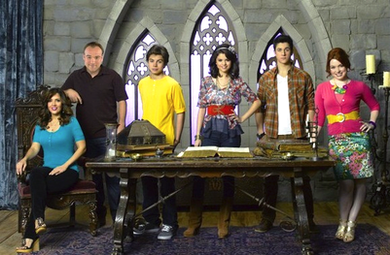There comes a time when it’s too late to tell people how you feel.
There will come a day when the person you mean to talk to won’t be there. Don’t wait for that day.
“There’s always tomorrow” isn’t always true.
The no-pants guide to spending, saving, and thriving in the real world.
If you don’t know why you are hear, please read about the 21 Day Happiness Training Challenge.
Selena Gomez is no longer the innocent yet rebellious Alex from Disney’s hit show Wizards of Waverly Place. In fact, the quirky and wholesome child star who was beloved by so many young women has now become a scantily

clad pop star that is singing risque lyrics to her on again off again pop star boyfriend Justin Beiber. Her transition to adult stardom has not been an easy one, and many believe that her role in “Spring Breakers” is a sign that she has officially entered adulthood and kissed her teen-friendly role preference in the past. But unlike other famous Disney child stars like Lindsey Lohan and Britney Spears, Gomez has had a relatively smooth path to adult stardom with only minor bumps in the road. But many people are asking themselves whether or not child stars can actually make it as adults, or whether their career is over once their cute phase stages.
Child stars are aware of the fact that they are always being watched. They become the idols of their young fans, and these young idols rely a lot on their cuteness to become a celebrity. But transitioning from a cute kid to a talented adult actor can be a difficult feat. Not only does the star have to earn a new fan base, they also must find a new identity and decide which types of roles they are willing to take now that they are a mature adult able to make their own decisions. Sometimes, even children who do not fall into the drug and alcohol trap, find it difficult when they are given control of their own careers without their guardian’s rules.
The Public is Less Receptive to a Child Star Turned Adult Star
Die hard Wizards of Waverly Place will always see Selena Gomez as the lovable yet comedic Alex Russo. While this was her most popular role, it is the role that will makes her transition into more mature roles difficult. The public is less receptive to an adult Selena Gomez, clad in bra tops and short shorts, because they do not realize that she has matured. When the public shuns a child star for taking on more adult roles, the star simply is not sought after for movies and sitcoms. Young female child stars tend to be judged much more than their male counterparts. In fact, Justin Timberlake and Ryan Gosling are both very successful in the acting scene, and they were both Mouseketeers.
It is possible for a child star to make it as a adult, but the person must have thick skin and be prepared for a publicly criticized transition. Many child stars simply choose to retire once they have outgrown the ability to take on youthful roles, and others are not mentally prepared for the scrutiny they will face. Ultimately, a child star can have a successful career in stardom as an adult if the public is ready for the transition.
Privacy Policy for LiveRealNow.net
The privacy of our visitors to LiveRealNow.net is important to us.
At LiveRealNow.net, we recognize that privacy of your personal information is important. Here is information on what types of personal information we receive and collect when you use and visit LiveRealNow.net, and how we safeguard your information. We never sell your personal information to third parties.
Spam
No spam, ever!
Log Files
As with most other websites, we collect and use the data contained in log files. The information in the log files include your IP (internet protocol) address, your ISP (internet service provider, such as AOL or Shaw Cable), the browser you used to visit our site (such as Internet Explorer or Firefox), the time you visited our site and which pages you visited throughout our site.
Cookies and Web Beacons
We do use cookies to store information, such as your personal preferences when you visit our site. This could include only showing you a popup once in your visit, or the ability to login to some of our features, such as forums.
We also use third party advertisements on LiveRealNow.net to support our site. Some of these advertisers may use technology such as cookies and web beacons when they advertise on our site, which will also send these advertisers (such as Google through the Google AdSense program) information including your IP address, your ISP , the browser you used to visit our site, and in some cases, whether you have Flash installed. This is generally used for geotargeting purposes (showing New York real estate ads to someone in New York, for example) or showing certain ads based on specific sites visited (such as showing cooking ads to someone who frequents cooking sites).
You can chose to disable or selectively turn off our cookies or third-party cookies in your browser settings, or by managing preferences in programs such as Norton Internet Security. However, this can affect how you are able to interact with our site as well as other websites. This could include the inability to login to services or programs, such as logging into forums or accounts.

Serial killers in the United States often gain cult status due to their strange courtroom antics and dramatic personalities. Recently deceased death row inmate Richard Ramirez was definitely one of the most famous serial killers of all time before he passed away of liver failure in California’s San Quentin State Prison.
After a dramatic arrest in 1985 in East Los Angeles by residents who recognized Ramirez from photographs displayed all over the news, Ramirez would sit in jail for years while awaiting a trial that finally began in 1989. There would be no more expensive trial in the history of Los Angeles County except for the O.J. Simpson trial that occurred a few years later.
At a cost of $1.8 million dollars, Los Angelinos would pay dearly for the privilege of trying Ramirez in a court of law. Incredibly, however, this massive sum wasn’t the only cost associated with this vicious serial killer. Because he was sentenced to death and due to the incredibly long appeals process associated with death row inmates, Ramirez sat in jail for over two decades without any fear of actually being put to death by the state of California.
Over the past hundred years, the number of individuals incarcerated in the United States has ballooned from a few hundred thousand people to almost 2.5 million prisoners. The most expensive people to incarcerate are death row inmates, who sit in a type of solitary confinement for decades. A moratorium on future executions in California has ensured that inmates like Ramirez have been costing taxpayers millions of dollars for housing and appeals with no likelihood of being put to death.
According to the American Civil Liberties Union, there are around 700 people sitting on death row in California, which require a massive investment of tax dollars. The state’s ongoing budget crisis and inability to balance its budget has put great strain on the prison system to house so many death row inmates at such an incredible cost.
Richard Ramirez’s untimely death at the age of 53 and his decades-long residency within a state prison brings to light a disturbing fact: more inmates die of natural causes while on death row than are actually put to death. Whether support for the death penalty exists or not, the billions of dollars spent by the state to keep inmates on death row has resulted in just 13 executions since the late 1970s.
A study in 2011 that was conducted by a judge and professor in the state suggested that California has spent over $4 billion since the death penalty was reinstituted. Out of those funds spent, at least a billion dollars was used for housing and incarceration of the inmates, including serial killers like Richard Ramirez.
A further study presented by the Commission on the Fair Administration of Justice in 2008 suggested that keeping the system intact with inmates on death row would cost around $137 million dollars a year. On the other hand, if California was to commute those death sentences to life in prison and abolish the death penalty, the yearly cost would drop to $11.5 million a year.
Offering the families of victims of death penalty-worthy crimes the chance to see a killer or other criminal experience the ultimate punishment may offer some sort of closure. Unfortunately, with the expectation that individuals on death row are more likely to die of natural causes than be put to death in California, the implementation of the death penalty in the state must be reexamined.